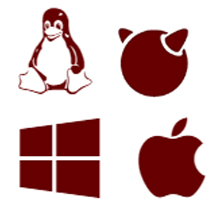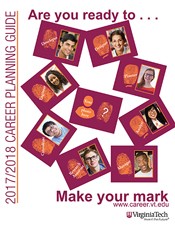
Table of Contents
Course Description
English 3764 covers the principles and procedures of technical communication. This writing-intensive online course focuses attention on analyzing audience and purpose, organizing information, designing graphics, and writing such specialized forms as correspondence, instructions, and proposals. Junior standing is required.
This syllabus and other course materials may change to adapt to your needs and those of others taking the course. You can always find the current assignments and information for the course on the course homepage as well as in Announcements in Canvas.
Course Objectives
- Analyze the rhetorical situation and determine the appropriate audience or users of written communication, considering the needs of global audiences and people with disabilities.
- Conduct research appropriate to workplace problem solving, such as literature review, evaluation of online resources, interview, and site inspection.
- Interpret research findings with understanding of ethical and human implications.
- Use conventions of various workplace genres, such as proposals, instructions, correspondence, reports, and slide decks, with understanding of how the genre conventions can be used as heuristics and as principles of arrangement.
- Collaborate with classmates in planning, researching, writing, revising, and presenting information.
- Apply principles of effective visual design for print and electronic presentation, including hierarchical, chronological, and spatial arrangements.
Your Teacher
 I’m Traci Gardner, an instructor in the English Department. I teach in the professional and technical writing program. In the past, I have worked at a small, educational software company in Austin, Texas, where I did technical writing, user support, and interface design. I did just about everything except coding, though I did learn to hack code a bit.
I’m Traci Gardner, an instructor in the English Department. I teach in the professional and technical writing program. In the past, I have worked at a small, educational software company in Austin, Texas, where I did technical writing, user support, and interface design. I did just about everything except coding, though I did learn to hack code a bit.
I have also worked as a web developer and writer for a nonprofit, educational association (National Council of Teachers of English). I created and maintained flat-file and database-driven websites, wrote online and print content that was published on various association sites and in journals, and wrote blog posts and social media updates for the association.
Resources for the Course
There are no textbooks to buy for these courses. Instead we will rely on online materials that are free to the public and materials that are free to you with a Virginia Tech login.
I have two reasons for this approach. First, open textbooks help reduce the cost of taking a course. Second, when you write something in the workplace, you are likely to look for help online, so I want to use resources you can use after these courses are over.
Resources to Buy, Borrow, or Find
You probably already have all these things, but if not, be sure to acquire them during the first week of class. Since this is an online course, you must have the necessary technology and accessories.
-
 A reliable computer—Linux, FreeBSD, Windows, or Mac. I don’t care as long as you know how to use it and can access the tools we are using on it.
A reliable computer—Linux, FreeBSD, Windows, or Mac. I don’t care as long as you know how to use it and can access the tools we are using on it. -
Working, dependable Internet access and a backup access plan. This course takes place online, so you need to be online. If the connection where you live goes out, know where you can go for free WiFi.
-
A word processor or Google Drive. Again, I don’t care which as long as you know how to use it. Whatever word processor you choose must be able to save your work as a *.DOC, a *.DOCX, or a *.PDF file.
-
A camera or a phone with a camera. Some of the activities will include images, and you may want to take your own photos. A borrowed camera will be fine.
-
Earphones/Headphones and a microphone. Some of the activities can include audio and video aspects, so earphones are handy. Additionally, you may create audio or video projects that you will need a mic for.
Textbooks and Tutorials
You can use any or all of these textbooks and tutorials as you work in the class. You will be asked to read some specific information, but for some projects you can use whatever resource best fits your interests and career goals.
 Virginia Tech Career Planning Guide
Virginia Tech Career Planning Guide- Technical Writing by Hamlin, Rubio, and DeSilva
- Style for Students Online: Effective Technical Writing in the Information Age by Schall
- Business Communication for Success by McLean
- The Tongue and Quill (PDF) by the USAF
- Professional Business and Technical Writing in Writing Commons
- Lynda.com Tutorials (free with your VT PID and password)
- MailChimp Content Style Guide
- Additional online readings are posted in Daily Discussion Posts.
Sites We Will Use
Everything for this course will be posted and shared online. Most of your writing will be public, shared with classmates and others who are interested in the course. The following sites are all free for you, but you may need to create some logins to use them if they are new to you. We will talk about how to use these sites during the first week of the course.
- Course Website: https://3764s18.tracigardner.com (the course home)
- Canvas: https://canvas.vt.edu/courses/63195 (for turning in work that will be graded)
 (Optional) Facebook Discussion Group: https://www.facebook.com/groups/3764s18/ (for sharing online resources)
(Optional) Facebook Discussion Group: https://www.facebook.com/groups/3764s18/ (for sharing online resources)
Course Requirements and Assessment
Your grades in this course are based 100% on your labor as you actively contribute to a supportive writing community and complete all the required activities and projects in the course with the members of your writing group. All work in this course is submitted online, via Canvas.
You must complete the following activities in order to earn a B or higher in this course:
- Earn a Complete on five assigned major projects (uploaded as Assignments in Canvas).
- Track your work in the course in a Labor Log (using a word processor or spreadsheet, uploaded as an Assignment in Canvas).
- Share at least one new or revised draft (with framing notes) a week with your writing group (entered in Discussions in Canvas).
- Provide formative feedback weekly on the drafts that are submitted by the members of your writing group (entered in Discussions in Canvas).
- Evaluate your labor in the course in a performance review, which serves as your final exam (uploaded as an Assignment in Canvas).
Additional details on the expectations for the course and grades other than B are available on the Requirements page.
Policies (or the fine print)
Equal Access and Opportunity: Everyone needs special accommodations at some point because we all learn differently. I am happy to work with the Services for Students with Disabilities (SSD) staff or directly with you to make sure that you have the support you need.
Please let me know during the first week of the term so that I can be sure you have the resources you need as soon as possible. Also see full details on the Accessibility page and the Classroom Access & Support Guide for additional information.
Communication Guidelines: We will use the optional Facebook Group for informal class discussion. Rather than emailing general questions to me, post your questions in the group so that anyone who knows the answer can help you. Find our group page at https://www.facebook.com/groups/3764s18/.
For personal questions, you can send a direct message in Canvas or send me an email message at tengrrl@vt.edu. I do not respond to students from any other email address. I try to answer student email within 24 hours on weekdays and within 48 hours on weekends and holidays.
Work Guidelines: All work and participation in this course is governed by the Undergraduate Honor System and the Virginia Tech Principles of Community.
The Undergraduate Honor Code pledge that each member of the university community agrees to abide by states:
“As a Hokie, I will conduct myself with honor and integrity at all times. I will not lie, cheat, or steal, nor will I accept the actions of those who do.”
Students enrolled in this course are responsible for abiding by the Honor Code. A student who has doubts about how the Honor Code applies to any assignment is responsible for obtaining specific guidance from the course instructor before submitting the assignment for evaluation. Ignorance of the rules does not exclude any member of the University community from the requirements and expectations of the Honor Code.
For additional information about the Honor Code, please visit the Undergraduate Honor System page.
Late Policy: My late policy includes a grace period that should cover most problems that come up, whether academic conflicts, illness, or a personal issue. It applies to all graded work and can be used multiple times. You do not need to ask in advance or explain why your work is late. Just take advantage of the grace period, as explained below, for any work OTHER than your final exam:
- The due date is the day that your work is due. Every student has a 3-day grace period after the due date during which the project can still be submitted.
- The grace period occurs between the due date and the deadline. Work submitted during the grace period will be marked as late in Canvas; however, there is no grade penalty for work submitted during the grace period.
- The deadline comes 3 days after the due date and is the final moment that Canvas will accept a project (listed as the “available until” date in Canvas). There are no extensions on deadlines. If you do not turn in your work by the end of the grace period, you receive a zero for that activity, and you cannot revise. Unlimited, punishment-free revisions are NOT intended to support those who never did the work in the first place.
Performance Review: Your performance review will count as the final exam for the course. There is no grace period or make-up option for your performance review. Your final exam must be submitted by the due date (11:59 PM on Monday, May 7) so that I can turn course grades in on time. You will receive a grade lower than a B if you do not turn in your final performance review on time. If you have three exams on Monday, May 7, let me know and we can make alternative arrangement.
In the case of extenuating circumstances, let me know immediately. I understand that things happen. As long as you are honest and timely in letting me know what’s going on, we can try to work something out.
Religious Holidays: Please take advantage of the grace period explained in the Late Policy section above if the due date for any work in this class coincides with a religious holiday that you celebrate. Please let me know before the holiday if the grace period will not be adequate, and we will come up with an alternative plan.
Missed Work: If you miss a deadline completely because of an illness, death in the family, or family emergency, see information from the Dean of Students Office for details on how to document the situation. You must provide official documentation within one week of any situation.
If you have an issue that affects your ability to complete the course, you may qualify for Academic Relief. For personal medical issues, contact the Schiffert Health Center, and for psychiatric or psychological issues, contact the Cook Counseling Center.
Backups: Save backups of all your work for this class. Maintain these backups in multiple places (your laptop, a flash drive, Google Docs, Dropbox, Box). Printed backups can also be useful. Do not discard any files, notes, or other work until the term is over and you have received your final grade. Be sure that you maintain backups so that you can continue your work when you encounter computer problems. If you need assistance with your computer, check with InnovationSpace or Customer Support Center (4Help).
Program Assessment: Please note that the Department of English may use your written work in its assessment of its teaching and learning goals. In such cases, your name will be removed and your work assessed anonymously. Your work will not be shared with any individual outside of the department. It will be used strictly to help the department offer students the best possible academic experience.
Grade Scale: I use the default Virginia Tech grade scale for Letter Grades with +/- for the course grade.
Project grades and grades for all other work during the course are graded either complete (signified by a checkmark in Canvas Grades) or incomplete (signified by an X in Canvas Grades). The page on How Canvas Grades Work provides additional information on the logistics of this system.
I do not round grades. The Canvas gradebook manages any mathematics. I do not provide extra credit for people who have not met satisfactory performance goals.
| A 93–100 A- 90–92.99 |
B+ 87–89.99 B 83–86.99 B- 80–82.99 |
C+ 77–79.99 C 73–76.99 C- 70–72.99 |
D+ 67–69.99 D 63–66.99 D- 60–62.99 |
F 59.99 & below |